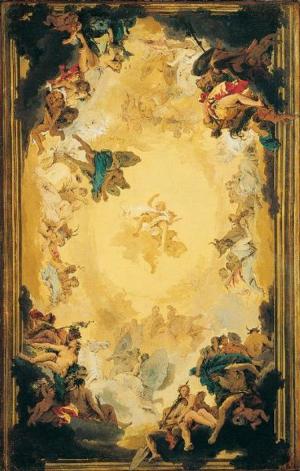| Author: | George MacDonald | ISBN: | 9781465550965 |
| Publisher: | Library of Alexandria | Publication: | March 8, 2015 |
| Imprint: | Language: | English |
| Author: | George MacDonald |
| ISBN: | 9781465550965 |
| Publisher: | Library of Alexandria |
| Publication: | March 8, 2015 |
| Imprint: | |
| Language: | English |
THE SHOP It was an evening early in May. The sun was low, and the street was mottled with the shadows of its paving-stones—smooth enough, but far from evenly set. The sky was clear, except for a few clouds in the west, hardly visible in the dazzle of the huge light, which lay among them like a liquid that had broken its vessel, and was pouring over the fragments. The street was almost empty, and the air was chill. The spring was busy, and the summer was at hand; but the wind was blowing from the north. The street was not a common one; there was interest, that is feature, in the shadowy front of almost each of its old houses. Not a few of them wore, indeed, something like a human expression, the look of having both known and suffered. From many a porch, and many a latticed oriel, a long shadow stretched eastward, like a death flag streaming in a wind unfelt of the body—or a fluttering leaf, ready to yield, and flit away, and add one more to the mound of blackness gathering on the horizon's edge. It was the main street of an old country town, dwindled by the rise of larger and more prosperous places, but holding and exercising a charm none of them would ever gain. Some of the oldest of its houses, most of them with more than one projecting story, stood about the middle of the street. The central and oldest of these was a draper's shop. The windows of the ground-floor encroached a little on the pavement, to which they descended very close, for the floor of the shop was lower than the street. But, although they had glass on three oriel sides, they were little used for the advertising of the stores within. A few ribbons and gay handkerchiefs, mostly of cotton, for the eyes of the country people on market-days, formed the chief part of their humble show. The door was wide and very low, the upper half of it of glass—old, and bottle-colored; and its threshold was a deep step down into the shop.
THE SHOP It was an evening early in May. The sun was low, and the street was mottled with the shadows of its paving-stones—smooth enough, but far from evenly set. The sky was clear, except for a few clouds in the west, hardly visible in the dazzle of the huge light, which lay among them like a liquid that had broken its vessel, and was pouring over the fragments. The street was almost empty, and the air was chill. The spring was busy, and the summer was at hand; but the wind was blowing from the north. The street was not a common one; there was interest, that is feature, in the shadowy front of almost each of its old houses. Not a few of them wore, indeed, something like a human expression, the look of having both known and suffered. From many a porch, and many a latticed oriel, a long shadow stretched eastward, like a death flag streaming in a wind unfelt of the body—or a fluttering leaf, ready to yield, and flit away, and add one more to the mound of blackness gathering on the horizon's edge. It was the main street of an old country town, dwindled by the rise of larger and more prosperous places, but holding and exercising a charm none of them would ever gain. Some of the oldest of its houses, most of them with more than one projecting story, stood about the middle of the street. The central and oldest of these was a draper's shop. The windows of the ground-floor encroached a little on the pavement, to which they descended very close, for the floor of the shop was lower than the street. But, although they had glass on three oriel sides, they were little used for the advertising of the stores within. A few ribbons and gay handkerchiefs, mostly of cotton, for the eyes of the country people on market-days, formed the chief part of their humble show. The door was wide and very low, the upper half of it of glass—old, and bottle-colored; and its threshold was a deep step down into the shop.















